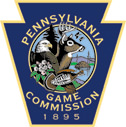Updated Planning Guide Available For Junior Pheasant Hunts

HARRISBURG, PA –-(AmmoLand.com)- While Pennsylvania’s junior pheasant hunt seems like a long way off, Pennsylvania Game Commission Executive Director Carl G. Roe noted that now is the time for hunting clubs to make plans to host an organized junior pheasant hunt.
“The future of hunting is directly related to the continuing participation of young Pennsylvanians,” Roe noted. “The goal is to successfully compete with all the other activities and recreational opportunities that vie for a young person’s time. It’s truly a challenge for the Game Commission, as well as Pennsylvania’s one million hunters.
“To maximize this opportunity for younger hunters, and to ensure we pass along the importance of ethics and sound ideals that have shaped our hunting heritage, the Game Commission and Pheasants Forever urge local clubs to consider hosting a junior pheasant hunt in their community.”
Those clubs interested in hosting a junior pheasant hunt are encouraged to use the 26-page planning guide prepared by the Game Commission and the Pennsylvania State Chapter of Pheasants Forever. The booklet offers a step-by-step guide on how to develop an organized junior pheasant hunt. The guide-book includes: a sample timeline; suggested committees and assignments; general event planning considerations; and several sample forms and news releases. It also includes event evaluation guides so clubs and organizations may consider changes for future junior pheasant hunts.
The guide can be viewed on the Game Commission’s website, by clicking on “Hunting” in the left-hand column of the homepage, then selecting the pheasant photo and then choosing “Junior Pheasant Hunt Planning Guide.” Later this year, the agency will update this section to include a listing of locations that the Game Commission plans to release birds for the 2009 junior pheasant hunts, as well as a listing of all the junior pheasant hunts being hosted by local clubs.
To participate in the junior pheasant hunt, youngsters must be 12 to 16 years of age, and must have successfully completed a basic Hunter-Trapper Education course. As required by law, an adult must accompany the young hunters. Participating hunters do not need to purchase a junior hunting license to take part in the youth pheasant hunt, but all participants must wear the mandatory 250 square inches of fluorescent orange material on their head, chest and back combined, visible from 360 degrees.
To bolster participation in the junior pheasant hunt, the Game Commission again plans to stock pheasants just prior to this special season. For the 2009 hunt, the agency will release 15,000 birds on lands open to public hunting. These areas will be identified in the 2009-2010 Pennsylvania Digest of Hunting and Trapping Regulations, as well as in future Game Commission news releases and on the agency’s website (www.pgc.state.pa.us).
Additionally, for those clubs who sign up before July 31, the Game Commission will provide, free of charge, a limited number of pheasants from its propagation program to those clubs that host a junior pheasant hunt. The only two stipulations to be eligible for clubs to receive Game Commission birds are that these hunts must have registration open to the public and must be held on lands open to public hunting.
Based on previous surveys, about half of the junior participants successfully bagged game; a male relative had accompanied most of them; the majority of participants were between the ages of 12 and 14; and many of them intend to hunt again. The agency also received many positive comments about the junior hunting opportunity.
The Game Commission has posted a link on its website to a video clip on YouTube promoting pheasant propagation and junior pheasant hunts.
About:
Pheasants Forever is a national non-profit habitat conservation organization with a system of hard-working local chapter volunteers dedicated to the protection and enhancement of pheasants and other wildlife populations. Pheasants Forever emphasizes habitat improvement, public awareness and education, and land management policies that benefit private landowners and wildlife alike. For more information, visit the organization’s website (www.pheasantsforever.org).
